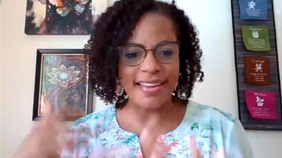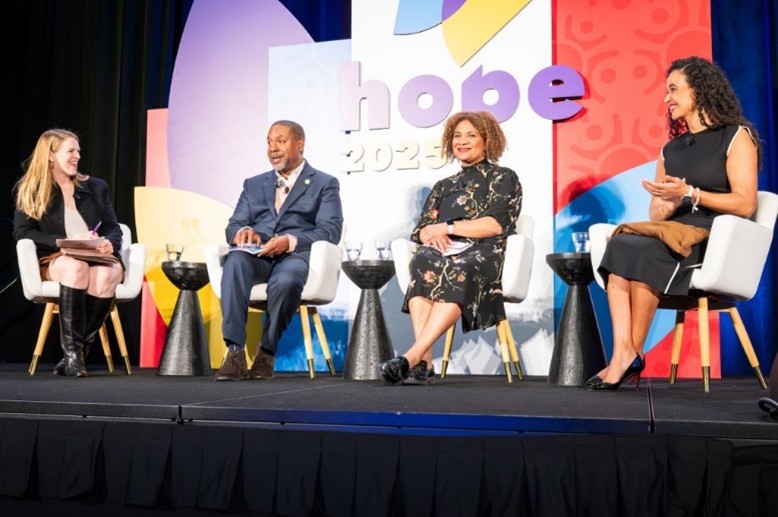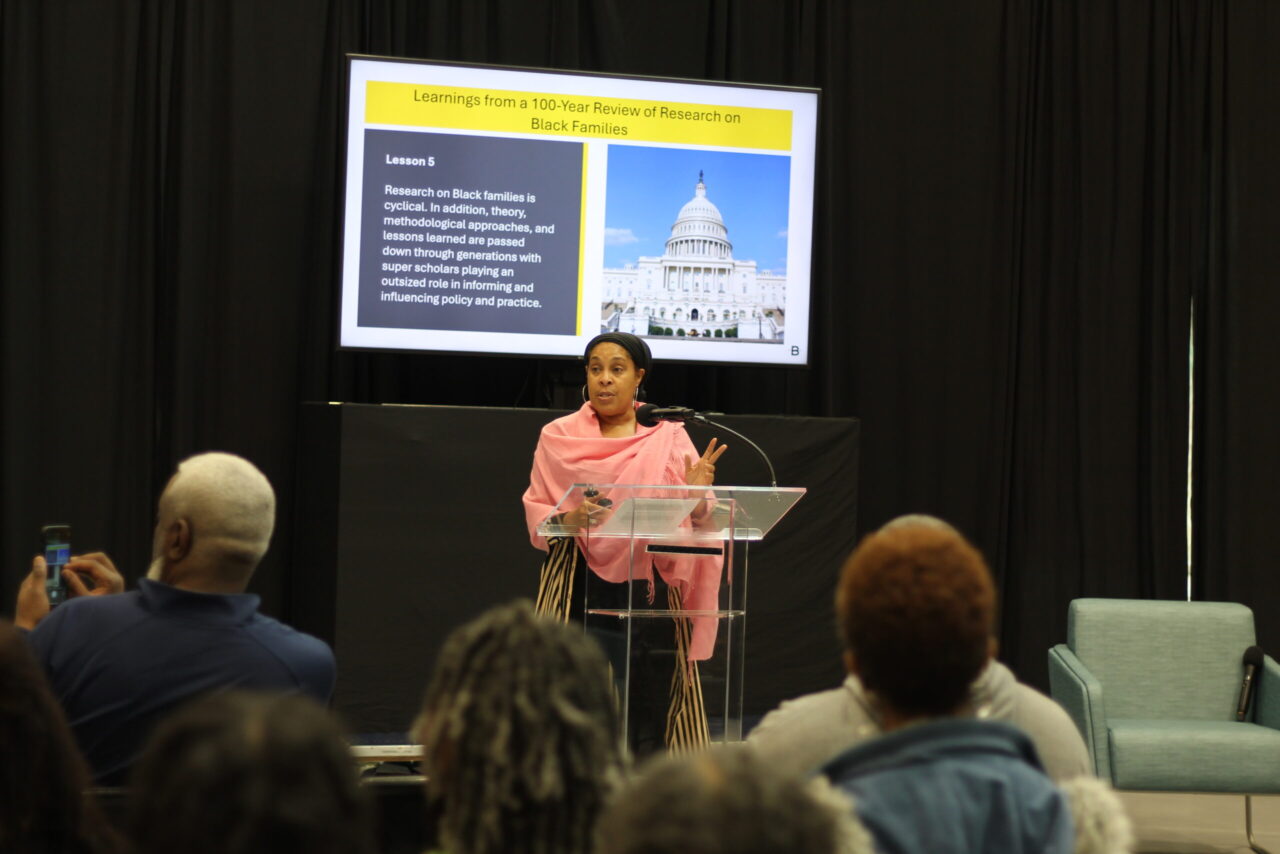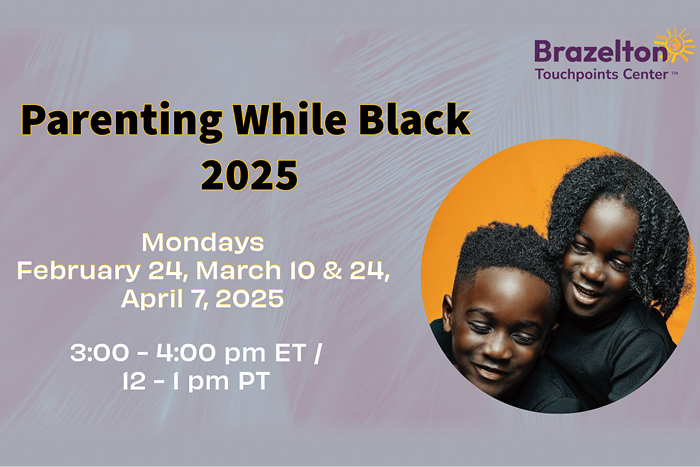Earlier this year, Black Families Flourishing (BFF) Director and Lead Researcher Dr. Chrishana M. Lloyd and research staff Drs. Rebecca Vivrette and Quiana Lewis Wallace attended the International City/County Management Association (ICMA) 2025 National Economic Mobility and Opportunity Conference in Baltimore, MD. The convening brought together local government leaders, researchers, community organizers, and policy advocates from across the country who are working to support economic mobility and racial equity through community-centered and data-informed approaches.
As a project committed to advancing rigorous research that illuminates the well-being of Black families in America, the BFF team found the conference rich with frameworks, strategies, and promising practices that resonate and align with our own work. Several sessions underscored how local governments are operationalizing equity goals, embedding lived experience into policymaking, and designing systems with—not just for—local communities.
The opening plenary offered a compelling introduction to these themes. Julia D. Novak, executive director of ICMA, welcomed attendees, followed by a powerful panel featuring Dr. Leonard Brock (CFLeads), Laura McAloon (City of Grand Island, NE), Christian Motley (Results for America), and Dr. Clarence Wardell (Gates Foundation). The panelists shared how their personal experiences shaped their professional journeys and reinforced the urgency of policies like the Earned Income Tax Credit (EITC) and Child Tax Credit in addressing systemic inequities. Their reflections on shared data ownership and coalition building affirmed BFF’s belief in the importance of local knowledge and community-grounded evidence to drive change.
In the session “Centering Lived Experiences to Drive Economic Mobility Investment,” attendees were introduced to the concept of Mobility Experiences, which is a framework of 28 life domains that collectively influence economic opportunity, from education and health to community belonging and career progression. Communities like Dubuque, IA demonstrate how important it is to have data frameworks to drive local investments and adopt new data governance practices to share information across agencies and sectors.
The session “How Local Leaders Are Using the Upward Mobility Framework” illustrated the power of data and community partnership. Leaders from Boone County, MO and Richmond, VA shared how they used tools like data walks and resident-led workgroups to develop mobility action plans. The Urban Institute’s Upward Mobility Framework has enabled these communities to target structural barriers in housing, education, and employment.
Youth voice and leadership also emerged as a major conference theme. In the session “Centering Youth in Economic and Workforce Development,” city leaders from Knoxville, TN, Redwood City, CA, and Linden, AL described how they are embedding youth in decision-making processes. From Knoxville’s Project TLC and youth councils, to Redwood City’s Youth Excel program and youth-facilitated town halls, to Linden’s paid internships, these initiatives emphasized the importance of not just serving youth but partnering with them to shape systems.
In the session “Beyond a Second Chance: Economic Mobility and Opportunity for All,” the spotlight turned to justice-impacted individuals. Leaders, including LaKeesha Eure (City of Newark), Simone Price (Center for Employment Opportunities), and Tony McCright, Jr. (National League of Cities), stressed the need to recognize lived experience as expertise. Through the JustUS Coordinating Council and new economic mobility reports, panelists offered practical frameworks for cross-agency collaboration and whole-of-government approaches that support the reentry and leadership of people with conviction histories.
The conference and sessions were powerful and affirmed BFF’s core commitment to actionable research that is rooted in the lived experiences, assets, and aspirations of Black families. As we continue our work, the lessons our team took away from the conference will help to inform and strengthen our research, partnerships, and policy engagement strategies to support Black families not just surviving but flourishing.







